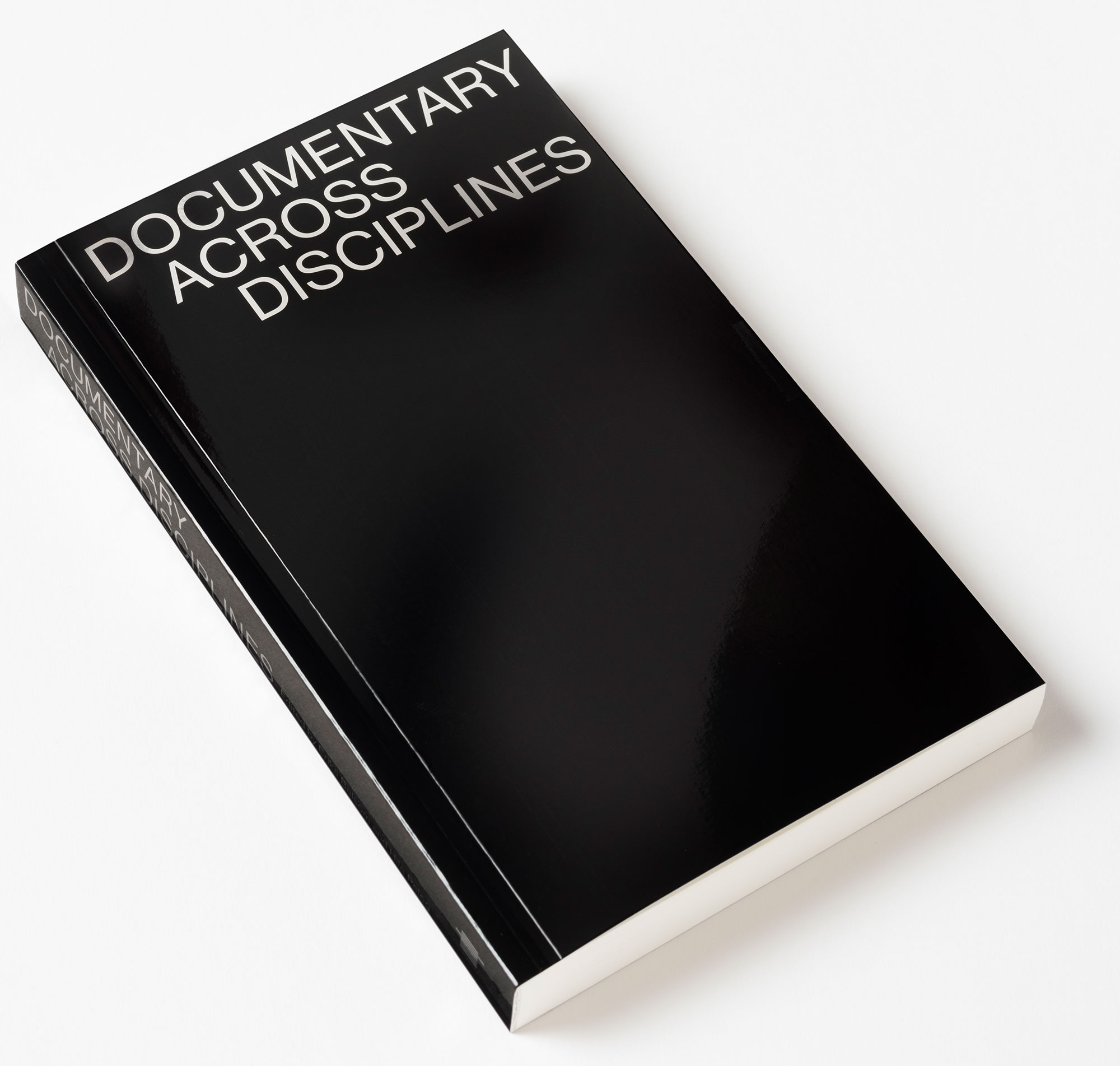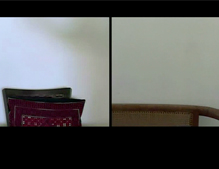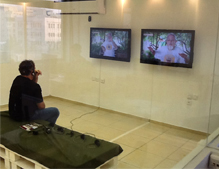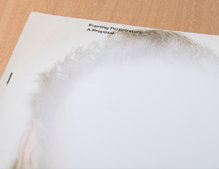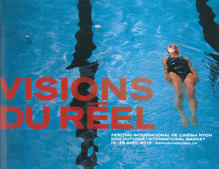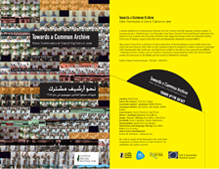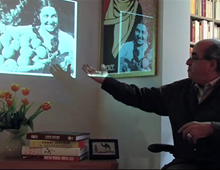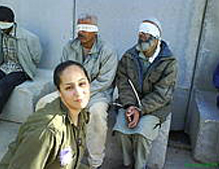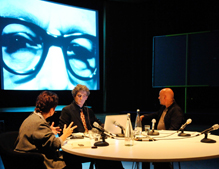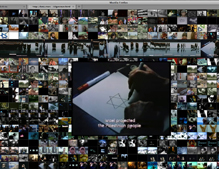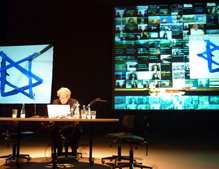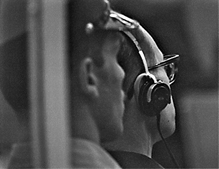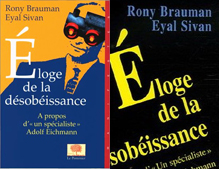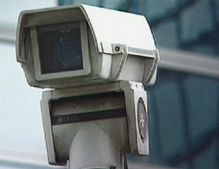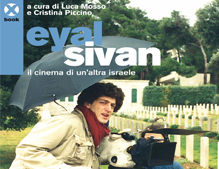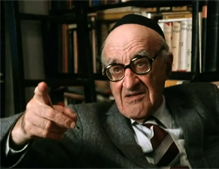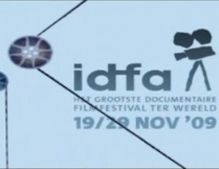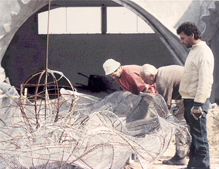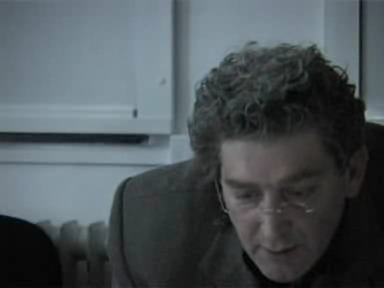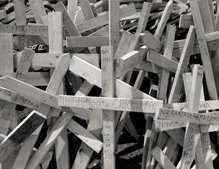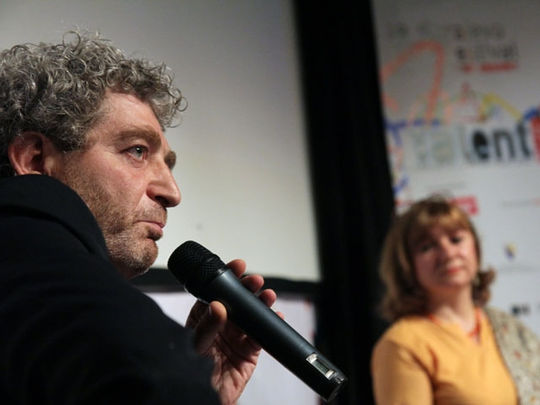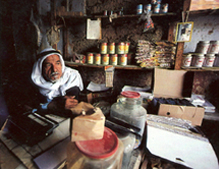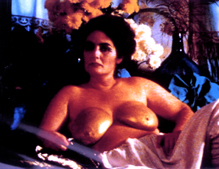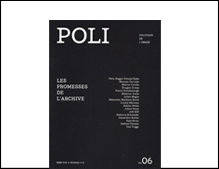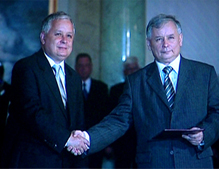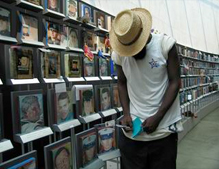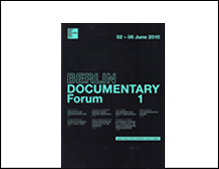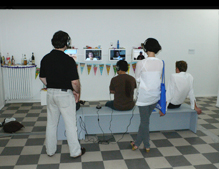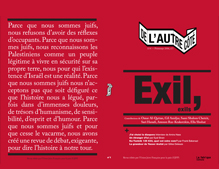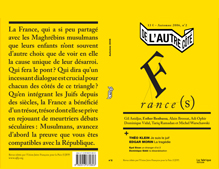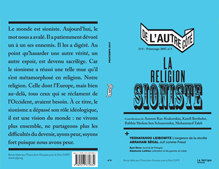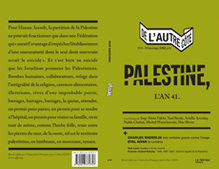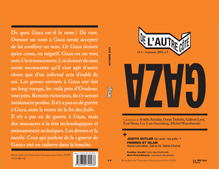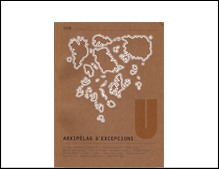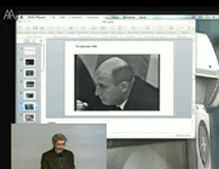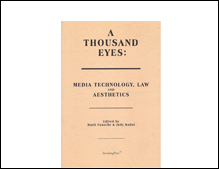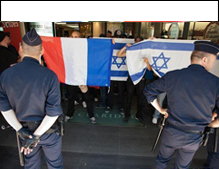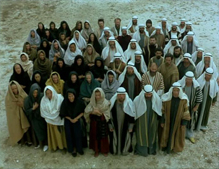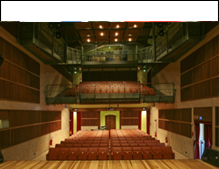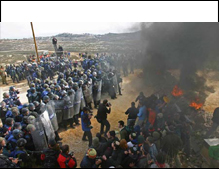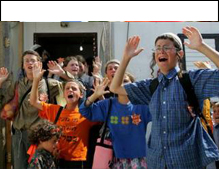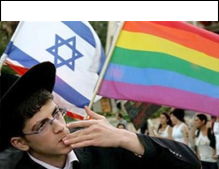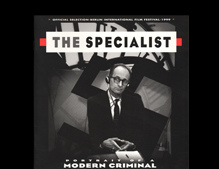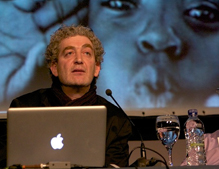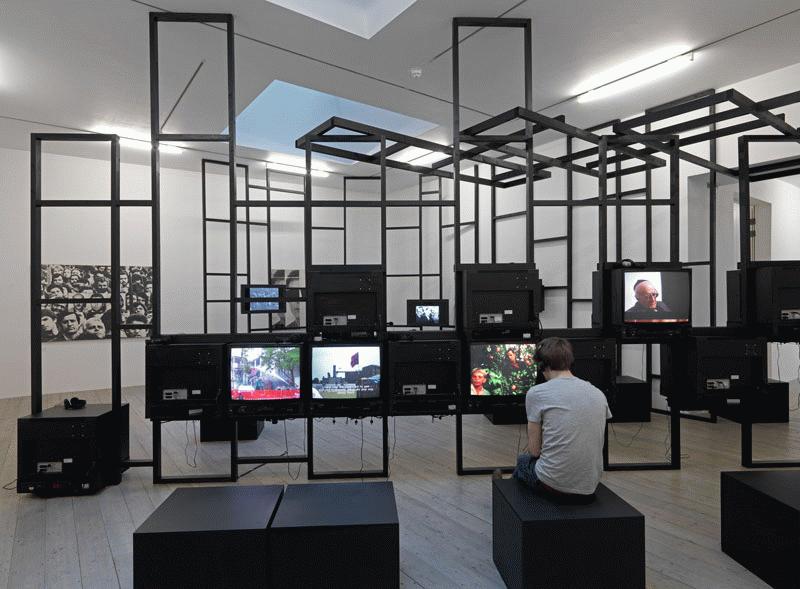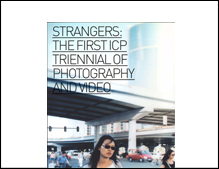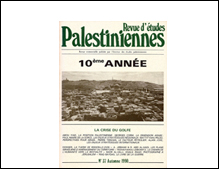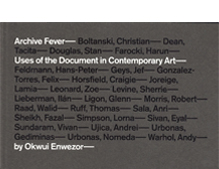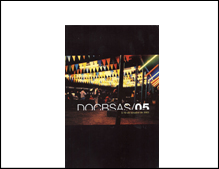-
Proposal for a visual media exhibition
with the participation of students of the Master of Film at the Dutch Film Academy, Amsterdam -
Get my films
Buy DVDs online at www.momento-films.com -
IZKOR
slaves of memory
Documentary film | 1990 | 97 min | color | 16mm | 4:3 | OV Hebrew ST -
Common Archive Palestine 1948
web based cross-reference archive and production platform
www.commonarchives.net/1948 - Project in progress - -
Montage Interdit [forbidden editing]
With professors Ella (Habiba) Shohat and Robert Stam / Berlin Documentary Forum 2 / Haus der Kulturen der Welt / June 2012 -
Route 181
fragments of a journay in Palestine-Israel
Documentary film co-directed with Michel Khleifi | 2003 | 272 min [4.5H] | color | video | 16:9 | OV Arabic, Hebrew ST
-
The Specialist
portrait of a modern criminal
Documentary film | 1999 | co-author Rony Brauman | 128 min | B/W | 4:3 | 35 mm | OV German, Hebrew ST -
Jaffa
the orange's clockwork
Documentary film | 2009 | 88 min | color & B/W | 16:9 | Digital video | OV Arabic, Hebrew, English, French ST
-
Montage Interdit
www.montageinterdit.net
Web-based documentary practice. A production tool, archive and distribution device | project in progress
-
Common State
potential conversation [1]
Documentary film | 2012 | 123 min | color | video | 16:9 split screen | OV Arabic, Hebrew ST -
Towards a common archive
testimonies by Zionist veterans of 1948 war in Palestine
Visual Media exhibition | Zochrot Gallery (Zochrot visual media lab) | Tel-Aviv | October 2012 - January 2013
-
I Love You All
Aus Liebe Zum Volk
Documentary film co-directed with Audrey Maurion | 2004 | 89 minutes | b/w & color | 35mm | OV German, French ST
An honest filmmaker?
by R.S.H. Tryster
In the controversy over whether director Eyal Sivan should receive public funding, the left has been for, the right against. My voice belongs to neither; it is a non-Zionist one of only partly Jewish ancestry and comes to you from Berlin. My information comes from first-hand knowledge. Sivan's dishonesty is a compelling reason to exclude him from public funding. Sivan now plays the victim, falsely denying that he has endorsed calls for anti-Israel boycotts. Recently, in London, he could be seen emphasizing with thumping hand that disrespect of international law by Israel "gives us the permission to question the right of Israel to exist!" My exposure of the forgeries in Sivan's 1999 film „The Specialist" became widely known in early 2005, just after I left my position as Director of the Steven Spielberg Jewish Film Archive, which, with the State Archive, preserved the Eichmann trial videos Sivan manipulated for his film (Sivan's claim that he preserved them is false). The film is bad enough; more damning of Sivan's integrity are his statements about it. In the film itself, Sivan removes anything non bureaucratic from Eichmann's character and villifies Prosecutor Gideon Hausner. How does Sivan succeed in „directing" characters who were videoed before his birth? He shapes their performances by replacing anything that doesn't match what he wants to show with something that does, regardless of original context. When he wants to tell his audience that Hausner ignored Eichmann's replies to his questions, he replaces the original shot of Hausner listening with two that show him demonstratively not listening. The whole film is like this and its reviews confirm that he fooled everybody. He even combined a question intended for one witness with a reaction from another who wasn't asked it. „The Specialist" is fiction, not documentary; it depicts events that did not take place. After his unmasking, Sivan, who had till then spoken vaguely and obscurely about the liberties he'd taken in his editing, admitted that most allegations were true. But though all were, in fact, true, he continued to deny some. The most extreme case was one in which he showed witness Pinchas Freudiger describing a meeting with Eichmann as „reassuring." revealed that Freudiger had actually described Eichmann as jack-booted, uniformed, armed and bellowing and that Sivan had replaced this with a description of a meeting without Eichmann. Sivan's reaction: „an outright lie." The press didn't call Sivan's bluff by checking the original tape. In Germany, a comparison was broadcast and the Adolf-Grimme-Institut, which had awarded him its prestigious prize, announced it would investigate whether the prize should be revoked (the last report was that a decision on the issue was delayed due to personnel changes). This suffices to trash Sivan's claim that he did not intend deception, but it is
only the tip of the iceberg. Sivan has spun fantastic tales of the Spielberg Archive's neglect of the original tapes. He says the originals were allowed to deteriorate so badly that he had to do expensive digital enhancement and claims to have left one sequence in his film in its original quality. He also says that any reflections seen on the famous glass booth were digitally (also expensively) put there for his film. If one actually compares, one sees many reflections in the original, which is of a quality largely indistinguishable from that of „The Specialist." For that one sequence he mentioned, Sivan himself artificially reduced the quality of the image, as if to say „look, this is how bad it was!" This illustrates how Sivan has been believed, not in spite of the scope of his deception, but because of it. My attack is not political and Sivan cannot claim artistic immunity from it. He has been selling a product, partially plagiarized, for which he makes fraudulent claims. He is a bad risk for any funding, public or private. If Sivan represents the left, it should spew him from its midst as an act of self-preservation. According to HU geography professor Ruth Kark, Sivan's claim that Yad Vashem was built on the site of an Arab village destroyed in 1948 is "nonsense." The audiences to whom he has been feeding this for years, in print and in person, cannot be blamed for believing worse of the Zionists, Israelis and/or Jews than the facts merit. Sivan should not be judged for his politics, but for his actions, and this would be a just point in time for the full truth about them to emerge.
R.S.H. Tryster was until 2005 the Director of the Steven Spielberg Jewish Film Archive and is a former film critic for The Jerusalem Post.

